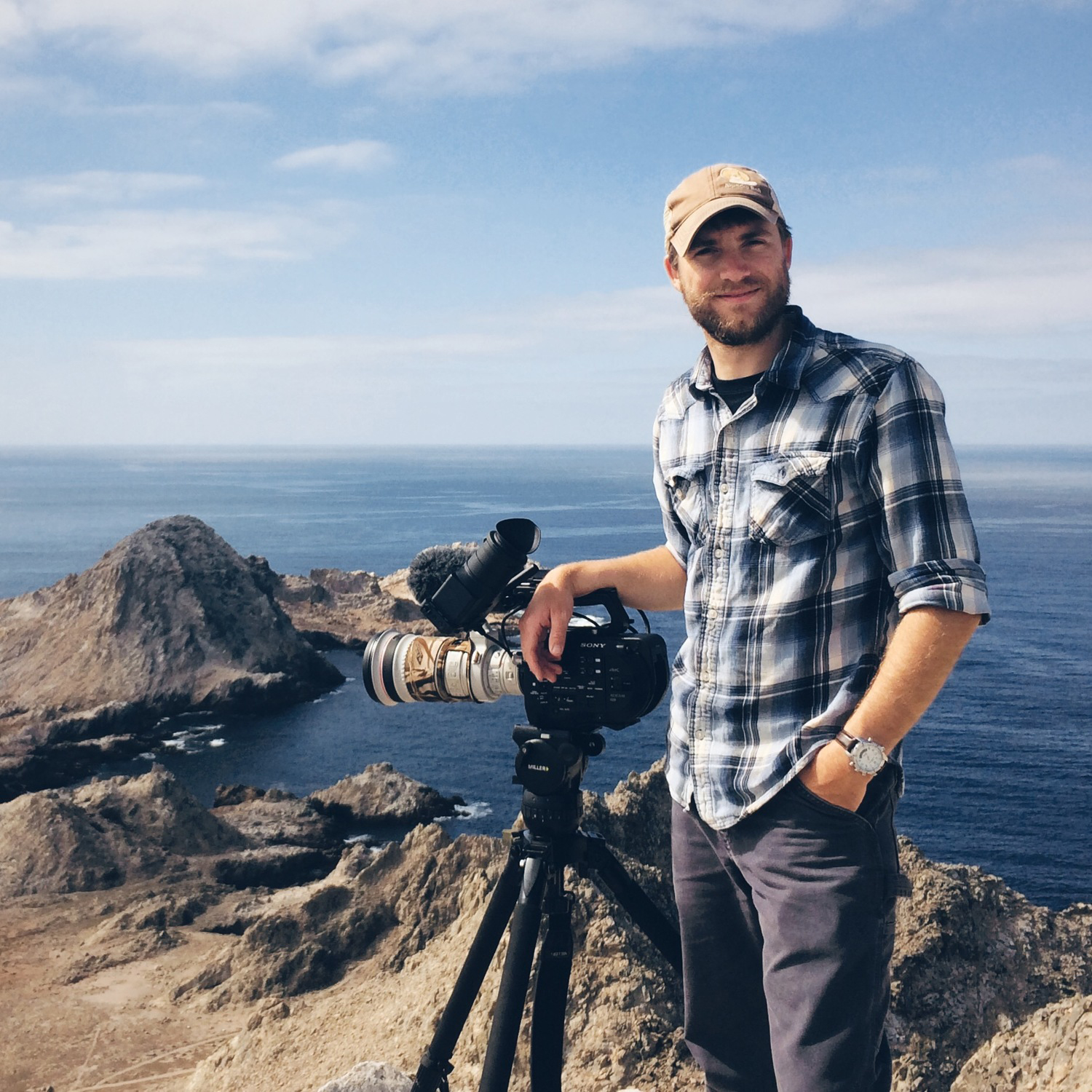Filmmaker explores the intersection of culture, nature
Journalism professor and filmmaker Jason Jaacks sits down to talk about his life. PHOTO CREDIT: mountainfilm.org
Professor Jason Jaacks is only getting started with his career telling stories through documentary films and mentoring students in the art of visual journalism.
Jaacks currently teaches full-time here at the University of Rhode Island in addition to being a documentary filmmaker and running his own small production company. Above all, Jaacks is a photographer and enjoys creating stories to share with people everywhere.
His production company primarily focuses on the intersection of culture and nature. Essentially, discovering humanity’s place in the natural world and how they coexist.
“When I was a third grader, I picked up a VHS camera and started taking videos of, you know, birds in the backyard,” Jaacks said. “And then [I was] making Lego movies with my friends. I saw the world through the camera lens, and that was it.”
There has been no doubt for Jaacks that this was something he wanted to do for the rest of his life.
Visual storytelling has also brought him on exciting adventures. He has taken on assignments and commissions in Japan and has been sent to Indonesia by Conservation International, a nonprofit environmental organization, to photograph its biodiversity. Rafting treacherous waters and settling in the Denali base camp in Alaska are just a glimpse into his experiences.
“Photography, filmmaking, journalism and nonfiction storytelling is a passport that allows you to see all these kinds of places,” he said.
Jaacks has also worked with National Geographic on many projects. He also earned the Explorer’s Grant from National Geographic early in his career, which provided him the funds to investigate and document animals, landscapes and oceans in the state of Washington.
The grant offers opportunities to individuals ages 18 to 25 to pursue projects relating to conservation and exploration.
Building relationships with those working in the National Geographic network presented Jaacks with bigger opportunities. This included producing videos for their websites, film projects that turned into television shows, and more grant funded expeditions.
“These opportunities still exist for young people,” Jaacks said. “They have these emerging grants for people who have a burning question to figure it out. It’s something that’s accessible to students here.”
Jaacks travels the globe to capture unique moments, and has a passion for sharing this ability with others. He has worked with nonprofit organizations to teach communities about documentary filmmaking.
These filmmaking workshops took place in South Africa, New Mexico and Arizona. Moreover, he taught as an adjunct at the University of California, where he received his master’s degree in journalism.
Due to his background in teaching, URI welcomed him into the journalism department. Here, he teaches JOR 221: Multimedia Reporting, JOR 321: Magazine Article and Feature Writing, JOR 420: Working in the Newsroom, and JOR 440: Independent Study.
“Where I thrive as one person talking to, kind of, the next generation of visual storytellers, is people who see this and are fired up by it,” Jaacks said. “So I like the mentoring aspect of teaching.”
Many students have found his classes to be motivating and it has sparked their interest in photography and filmmaking.
“His career has inspired me already because I have specified my major selections towards Biological Sciences and Journalism,” junior Stella Mueller said. “Hearing about his experiences confirms that this is exactly what I want to study and now I am considering adding an aspect of photography just from what he’s taught me this early in the semester.”
This journey for Jaacks has been filled with meeting compelling individuals and educating them on his findings. However, he sees his children as his biggest accomplishment.
In regards to his profession, to be able to turn what he loves into a career has been fulfilling. As technology continues to advance, Jaacks is grateful to be a part of the ever changing world of media.
Currently, Jaacks has ongoing projects with Rhode Island Public Broadcasting Service (PBS), PBS National, and pitching ideas to federally funded grants. He is also waiting for another one of his films to premiere in just a few short weeks in Washington D.C.’s Environmental Film Festival.
“The long and the short of it is you’re never done,” he said.
Jaacks has no intention of ending his visual journalism career just yet, and he is eager to chase the opportunities that come his way.





